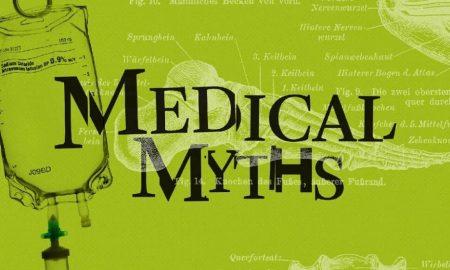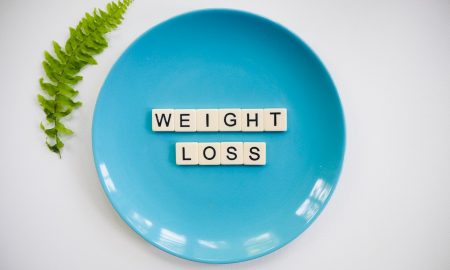
Can a Low-Carb Diet Make You Sick?

Ketogenic diet has received publicity from some of the most popular celebrities including the Kardashians and it has captured the interest of the entire weight-loss community these days. Even though the high-fat, low-carb diet is the most searched weight-loss term on Google, it has its certain drawbacks which should make you think twice before following the eating plan.
Ketogenic Diet’s Side Effects

Ketogenic diet has received criticism from the health community with experts warning dieters that following an unsustainable and restrictive lifestyle can have long-term implications like high cholesterol, nutritional deficiencies and ketoacidosis, a serious complication that causes excessive production of acids called ketones.
People who follow ketogenic diet face other unwanted consequences as well, before the long-term side-effects even kick in. One of the short-term effects of eliminating carbs from your diet is keto flu, an unofficial term used by the weight-loss community to describe how people feel soon after they start following the eating plan.
The symptoms of keto can range from physical to emotional including cramps, fatigue, irritability and nausea as your brain and body struggles to adjust to the new diet. Abbey Sharp, a nutritionist from Toronto says that our body relies mostly on carbohydrates for energy so when you take the key nutrient out of the equation, it takes a while before our system adjusts to the low-carb lifestyle. Dieticians in favor of the keto diet say that the symptoms are only temporary and there are certain ways that you can minimize them.
The Keto Flu

People who follow ketogenic diet must adhere to strict dieting rules and cut down their carbohydrate consumption to only 2% to 5% of their daily calorie requirement.
Although the science community hasn’t given an official name or definition to the keto flu, the symptoms of this flu-like condition are triggered when a person starts following the restrictive diet and cuts most of the carbohydrates from their diet. Eliminating carbs puts their body in a starvation mode, leading to a process called ketosis, whereby stored fat is burned for energy instead of glucose.
Edward Weiss, a professor of nutrition at St. Louis University says that he doesn’t recommend the ketogenic diet because of the way it makes people feel. The side-effects are the worst in the beginning while their body is going through a transition phase. Many dieters report a sudden drop in their energy after cutting out carbohydrates which can be linked to low blood sugar levels. In some cases, symptoms such as brain fog, abnormal fatigue, constipation and cramping have also been reported. Sharp says that there is also a sudden drop in electrolyte levels inside the body triggered by quick weight loss which contributes to loss of energy.
Effects on Athletic Performance

Dieters also report other unwanted side effects like bad breath, stinky sweat and foul-smelling urine which often occur due to a high concentration of a chemical byproduct of ketone metabolism called acetone. Nutritionist Cynthia Sass says that many of her clients who have tried the keto diet report irritability and sudden mood swings as common side effects. Some even admit that they get intense sugar craving even though they aren’t necessarily feeling hungry, thanks to the high fat and protein content in their diet which keep them satiated for longer.
Keto diet is especially unpopular among people with high physical activity levels because the low carb content can lead to decreased energy which can hamper athletic performance. A recent study published in the Sports Medicine and Physical Fitness journal revealed that after following a keto diet for four days, athletes performed worse in intense exercises in comparison to those on a high-carb diet.
Researchers also reported that the athletes were more irritable during the keto phase and frequently complained about being hungry and tired. However, some athletes who have tried keto report the opposite effect saying that the high fat and protein content gives them more energy and retains muscle mass.
The initial side effects of the keto diet do subside after the first few days, although the time it takes for your body can vary depending on a number of factors including age, metabolic activity and lifestyle.
More in Weight Loss and Diet
-
Check Your Sodium Intake—Not All Salts You Eat Are the Same
Salt is one of the most basic and most important ingredients in cooking. There are a lot of variants of salt...
November 1, 2023 -
Worried About Diabetes? Here Are Some Common Myths
There are several myths about diabetes that are frequently reported as facts. Diabetes misrepresentations can sometimes be harmful, leading to an...
June 29, 2023 -
Many Patients Pay Their Medical Costs Out Of Their Pockets – Even With Insurance
With rising inflation, it has become difficult for people to even fulfill their basic necessities. They are more concerned about how...
June 6, 2023 -
What Is The Right Weight For Kids And How To Gain Weight Healthily
Keeping your child happy and healthy is the primary concern of every parent. Parents usually focus on providing their young ones...
May 12, 2023 -
Thyroid Disorders in Children: What Parents Need to Know
Thyroid disorders are not limited to adults; they can also affect children. The thyroid gland produces hormones that play a crucial...
April 29, 2023 -
Should Doctors Attend To Patients With ‘Do Not Resuscitate Tattoos’?
Doctors at the University of Miami hospital were confronted with a dilemma when a 70-year-old unconscious man with a tattoo “do...
April 3, 2023 -
Your Antidepressant May Not Work If You Keep Doing This One Thing
People use social comparison to measure their self-worth. Social comparison has been in existence since time immemorial, and it is as...
April 1, 2023 -
Pro Tips on Preventing Hair Breakage While Keeping Your Hair Moisturized at Home
Every one of us is thinking a lot about how to forestall hair breakage and keep them moisturized at home. Since...
March 22, 2023 -
Planning to Travel After Retirement? This is the Best Medicare Coverage for You
Does Medicare insurance go with you once you are out of the country? It’s currently open enrollment period, and while planning...
March 14, 2023















You must be logged in to post a comment Login